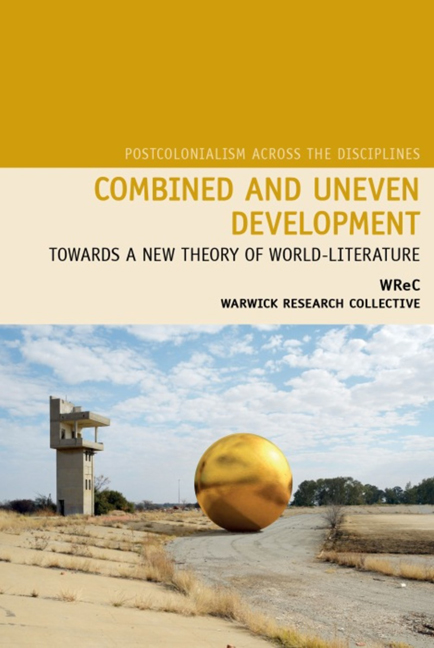Book contents
- Frontmatter
- Dedication
- Contents
- A Note on Collaborative Method
- 1 World-Literature in the Context of Combined and Uneven Development
- 2 The Question of Peripheral Realism
- 3 ‘Irrealism’ in Tayeb Salih's Season of Migration to the North
- 4 Oboroten Spectres: Lycanthropy, Neoliberalism and New Russia in Victor Pelevin
- 5 The European Literary Periphery
- 6 Ivan Vladislavic: Traversing the Uneven City
- Works Cited
- Index
3 - ‘Irrealism’ in Tayeb Salih's Season of Migration to the North
- Frontmatter
- Dedication
- Contents
- A Note on Collaborative Method
- 1 World-Literature in the Context of Combined and Uneven Development
- 2 The Question of Peripheral Realism
- 3 ‘Irrealism’ in Tayeb Salih's Season of Migration to the North
- 4 Oboroten Spectres: Lycanthropy, Neoliberalism and New Russia in Victor Pelevin
- 5 The European Literary Periphery
- 6 Ivan Vladislavic: Traversing the Uneven City
- Works Cited
- Index
Summary
There is now widespread interest in identifying the particularities of peripheral modernism, even when this is rarely named as such and even though its provenance remains unexplained. In emphasising that the internally differentiated peripheries and semi-peripheries of core capitalism extended and still extend to a larger geo-political expanse than the once-colonised regions, we assume a world-system driven to expand into the non-capitalist worlds, whether through military conquest and occupation, or gun-boat diplomacy, or the export of capital. However, we also observe the extent and degree of the coercions visited on those societies that were seized for their natural and labour resources, or invaded for both material and political reasons. Such determinants, we suggest, inflect the singular accents of literatures from these locations, engendering a consciousness of a violent capitalism that we will not expect to find in the writings of Eastern Europe or Portugal. Moreover, most of the regions once occupied and ruled by the imperialist powers continue to function as the hinterlands of capitalism's power centres, even where spectacular economic development is taking place, and are home to the majority of the world's wholly dispossessed.
It is on such grounds that our reading of a novel from the peripheries departs from the assumptions of critics indifferent to the ways in which such literatures dramatise the trauma of modernity: for here the precipitate and selective introduction of capitalist productive and social modes into a non-capitalist environment produced incompatible material and existential situations, generating aesthetic forms encoding these disjunctions and constituting their stylistic peculiarities. Consider then the implication of Susan Stanford Friedman's (2006) challenge to the received conception of modernity as a ‘western’ invention. In attempting to reverse the systematic rexclusion from the critical literature of ‘the creative agencies of colonial and postcolonial subjects as producers of modernism’ (428), she refers us to the ‘indigenization’ and ‘cannibalism’ of cultural traditions from the ‘west’ made possible by ‘contact zones’ (430–33). Yet while she complains about the ‘curse of derivativeness’ attaching to colonial and postcolonial modernisms (432), she herself situates ‘Western aesthetics’ (431) as the source and origin of the (‘non-western’) innovations she sets out to celebrate.
- Type
- Chapter
- Information
- Combined and Uneven DevelopmentTowards a New Theory of World-Literature, pp. 81 - 95Publisher: Liverpool University PressPrint publication year: 2015



